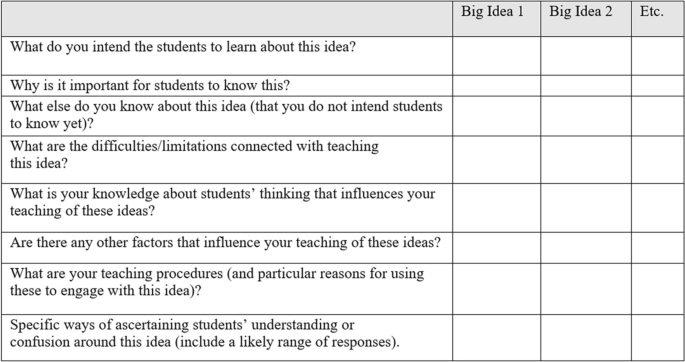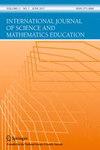Collective pedagogical content knowledge for teaching sustainable development
IF 2.1
3区 教育学
Q2 EDUCATION & EDUCATIONAL RESEARCH
International Journal of Science and Mathematics Education
Pub Date : 2023-11-04
DOI:10.1007/s10763-023-10421-7
引用次数: 0
Abstract
Abstract It is vital that upper secondary students gain a rich and deep knowledge of sustainability issues, as they will enter adulthood and working life within a short time. The students belong to a generation that will be intensely involved in managing several environmental issues to achieve sustainable development for our Earth. However, earlier research indicates that many teachers have a low self-efficacy for teaching sustainability issues. This study aimed to explore how science teacher teams in Swedish upper secondary schools can develop their knowledge and expertise in sustainable development (SD) through collective reflections with the support of the reflective tool Content Representation (CoRe). Science teachers’ pedagogical content knowledge (PCK) development in teaching SD was examined. Twelve in-service science teachers participated in the study. The qualitative research design included semi-structured interviews and science teacher teams’ collective meetings. The findings covered four themes about how the collective reflections with support of the CoRe tool stimulated teachers’ PCK development: (1) creating structure and a focus for learning conversations, (2) modification of the teaching approach, (3) development of new content knowledge and pedagogical knowledge in SD, and (4) shared language to stimulate equal opportunities for students to learn SD. The conclusion is that with the support of CoRe, the teacher team’s collective PCK in SD was developed; therefore, we recommend that decision-makers within the school system organize regular meetings in science teacher teams and introduce CoRe to the teachers.

集体教学内容知识促进教学可持续发展
高中学生获得丰富而深入的可持续发展问题知识至关重要,因为他们将在短时间内进入成年期和工作生活。学生们属于将积极参与管理若干环境问题以实现地球可持续发展的一代人。然而,早期的研究表明,许多教师对教学可持续性问题的自我效能感较低。本研究旨在探讨瑞典高中科学教师团队如何在反思工具内容表示(CoRe)的支持下,通过集体反思来发展他们在可持续发展(SD)方面的知识和专业知识。对科学教师的教学内容知识(PCK)发展进行了研究。12名在职科学教师参与了这项研究。质性研究设计包括半结构化访谈和科学教师团队集体会议。研究结果涵盖了四个主题,即在CoRe工具支持下的集体反思如何促进教师的PCK发展:(1)为学习对话创造结构和焦点;(2)修改教学方法;(3)开发新的内容知识和教学知识;(4)共享语言以促进学生学习可持续语言的平等机会。结论:在CoRe的支持下,教师团队在SD的集体PCK得以开发;因此,我们建议学校系统内的决策者在科学教师团队中组织定期会议,并向教师介绍CoRe。
本文章由计算机程序翻译,如有差异,请以英文原文为准。
求助全文
约1分钟内获得全文
求助全文
来源期刊

International Journal of Science and Mathematics Education
EDUCATION & EDUCATIONAL RESEARCH-
CiteScore
5.10
自引率
9.10%
发文量
87
期刊介绍:
The objective of this journal is to publish original, fully peer-reviewed articles on a variety of topics and research methods in both science and mathematics education. The journal welcomes articles that address common issues in mathematics and science education and cross-curricular dimensions more widely. Specific attention will be paid to manuscripts written by authors whose native language is not English and the editors have made arrangements for support in re-writing where appropriate. Contemporary educators highlight the importance of viewing knowledge as context-oriented and not limited to one domain. This concurs with current curriculum reforms worldwide for interdisciplinary and integrated curricula. Modern educational practice also focuses on the use of new technology in assisting instruction which may be easily implemented into such an integrated curriculum. The journal welcomes studies that explore science and mathematics education from different cultural perspectives.
 求助内容:
求助内容: 应助结果提醒方式:
应助结果提醒方式:


